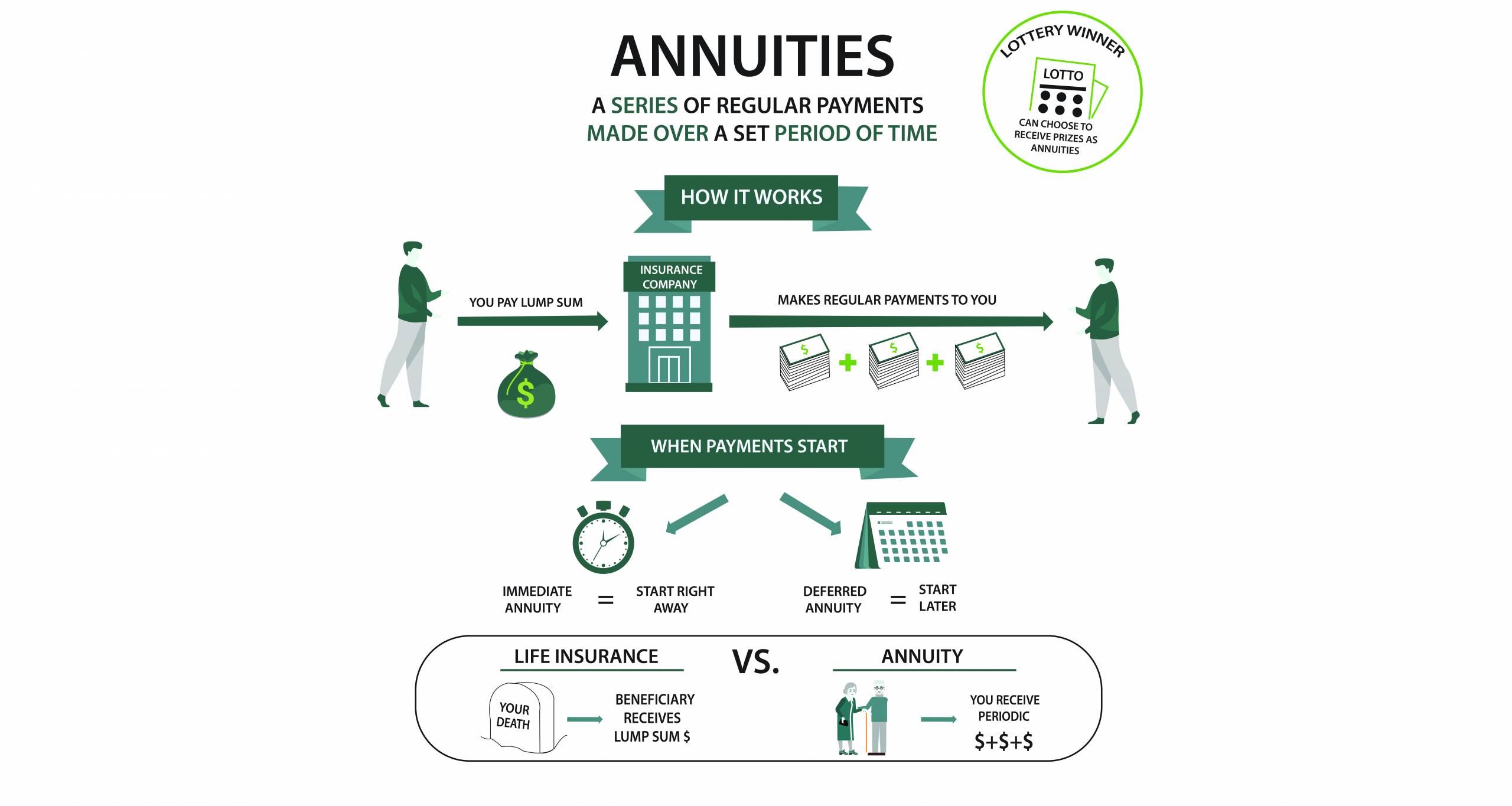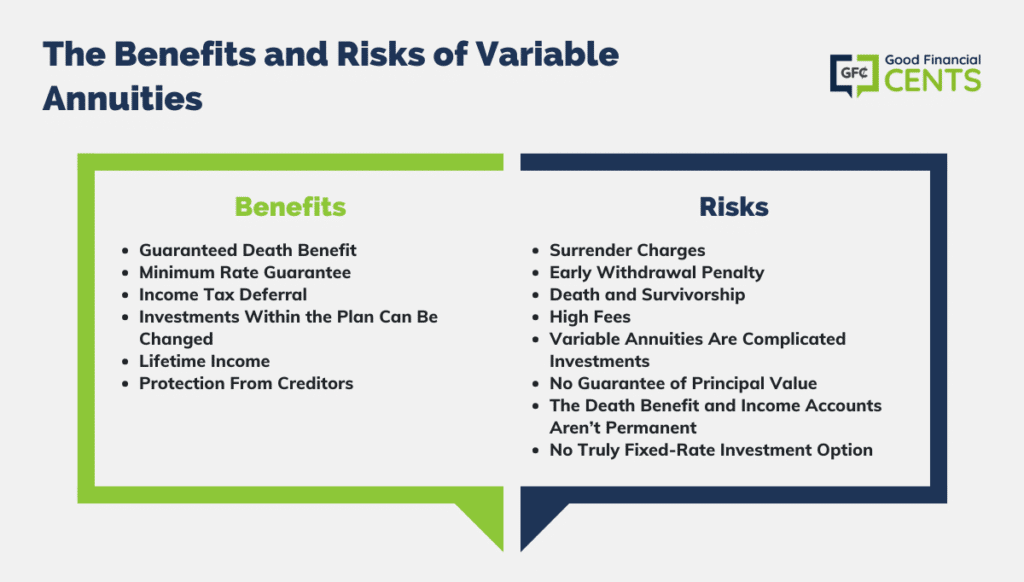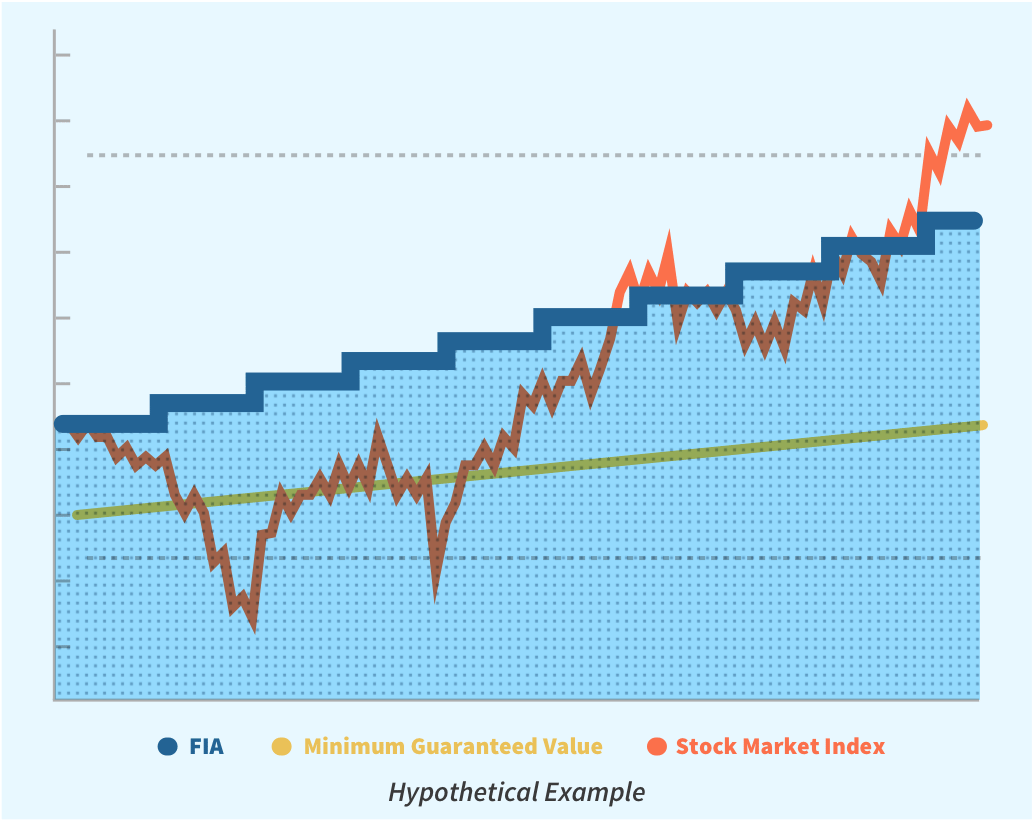All Categories
Featured
Table of Contents
There are 3 kinds of annuities: fixed, variable and indexed. With a fixed annuity, the insurance policy company ensures both the rate of return (the rate of interest price) and the payout to the investor.
With a deferred set annuity, the insurance provider agrees to pay you no less than a defined rate of passion as your account is growing. With an immediate fixed annuityor when you "annuitize" your postponed annuityyou get a predetermined set amount of money, typically on a monthly basis (comparable to a pension).
While a variable annuity has the advantage of tax-deferred growth, its annual expenditures are most likely to be much more than the expenses of a typical common fund. And, unlike a dealt with annuity, variable annuities don't supply any kind of assurance that you'll gain a return on your financial investment. Instead, there's a danger that you could in fact lose money.
Analyzing Strategic Retirement Planning Key Insights on Your Financial Future What Is the Best Retirement Option? Advantages and Disadvantages of Annuities Fixed Vs Variable Why Fixed Annuity Vs Equity-linked Variable Annuity Is a Smart Choice How to Compare Different Investment Plans: A Complete Overview Key Differences Between Different Financial Strategies Understanding the Key Features of Long-Term Investments Who Should Consider Strategic Financial Planning? Tips for Choosing the Best Investment Strategy FAQs About Planning Your Financial Future Common Mistakes to Avoid When Planning Your Retirement Financial Planning Simplified: Understanding Fixed Annuity Vs Variable Annuity A Beginner’s Guide to Smart Investment Decisions A Closer Look at Choosing Between Fixed Annuity And Variable Annuity
Due to the complexity of variable annuities, they're a leading source of investor problems to FINRA. Before purchasing a variable annuity, thoroughly checked out the annuity's program, and ask the individual marketing the annuity to explain all of the item's functions, riders, expenses and restrictions. Indexed annuities commonly offer a minimal surefire interest price combined with a rate of interest rate linked to a market index.
Recognizing the functions of an indexed annuity can be confusing. There are numerous indexing methods companies utilize to compute gains and, as a result of the selection and complexity of the approaches utilized to credit score interest, it's challenging to contrast one indexed annuity to one more. Indexed annuities are generally categorized as one of the following 2 kinds: EIAs supply an ensured minimum rates of interest (generally at least 87.5 percent of the premium paid at 1 to 3 percent rate of interest), as well as an added interest price connected to the performance of several market index.

Traditional investors who value safety and security and stability. Those nearing retired life who want to sanctuary their assets from the volatility of the supply or bond market. With variable annuities, you can buy a variety of safeties including supply and bond funds. Securities market performance figures out the annuity's value and the return you will certainly obtain from the cash you invest.
Comfortable with changes in the securities market and desire your financial investments to maintain rate with inflation over a lengthy duration of time. Young and want to prepare monetarily for retired life by enjoying the gains in the stock or bond market over the lengthy term.
As you're building up your retirement cost savings, there are many ways to stretch your money. can be particularly useful cost savings tools since they ensure a revenue quantity for either a collection period of time or for the rest of your life. Taken care of and variable annuities are 2 options that use tax-deferred growth on your contributionsthough they do it in various ways.
Breaking Down Variable Annuities Vs Fixed Annuities Key Insights on Fixed Income Annuity Vs Variable Annuity What Is the Best Retirement Option? Benefits of What Is Variable Annuity Vs Fixed Annuity Why Choosing the Right Financial Strategy Can Impact Your Future What Is A Variable Annuity Vs A Fixed Annuity: Simplified Key Differences Between Different Financial Strategies Understanding the Key Features of Annuities Fixed Vs Variable Who Should Consider Strategic Financial Planning? Tips for Choosing the Best Investment Strategy FAQs About Planning Your Financial Future Common Mistakes to Avoid When Choosing Tax Benefits Of Fixed Vs Variable Annuities Financial Planning Simplified: Understanding Deferred Annuity Vs Variable Annuity A Beginner’s Guide to Smart Investment Decisions A Closer Look at How to Build a Retirement Plan
variable annuity or both as you plot out your retirement income plan. A gives a surefire rate of interest price. It's taken into consideration a traditional item, offering a moderate profits that are not connected to market efficiency. Your contract value will enhance as a result of the accrual of guaranteed rate of interest earnings, meaning it won't lose worth if the marketplace experiences losses.
Your variable annuity's financial investment performance will certainly influence the dimension of your nest egg. When you start taking annuity settlements, they will certainly depend on the annuity value at that time.
Market losses likely will cause smaller payouts. Any type of rate of interest or various other gains in either sort of contract are sheltered from current-year taxation; your tax obligation liability will certainly come when withdrawals start. Allow's take a look at the core attributes of these annuities so you can decide just how one or both may fit with your general retirement approach.

A fixed annuity's value will not decrease as a result of market lossesit's consistent and steady. On the other hand, variable annuity worths will certainly change with the performance of the subaccounts you choose as the marketplaces fluctuate. Incomes on your taken care of annuity will highly rely on its gotten price when purchased.
Conversely, payout on a fixed annuity acquired when rates of interest are low are most likely to pay revenues at a lower price. If the rates of interest is assured for the size of the agreement, revenues will certainly continue to be constant no matter of the marketplaces or price task. A set price does not imply that dealt with annuities are safe.
While you can't arrive on a set rate with a variable annuity, you can choose to buy conventional or hostile funds tailored to your danger level. More traditional investment options, such as short-term bond funds, can aid decrease volatility in your account. Given that fixed annuities use a set rate, dependent upon present rate of interest, they do not supply that very same adaptability.
Breaking Down Fixed Indexed Annuity Vs Market-variable Annuity A Comprehensive Guide to Variable Vs Fixed Annuities Defining Fixed Annuity Vs Equity-linked Variable Annuity Features of Smart Investment Choices Why Variable Annuities Vs Fixed Annuities Matters for Retirement Planning How to Compare Different Investment Plans: A Complete Overview Key Differences Between Different Financial Strategies Understanding the Rewards of Fixed Vs Variable Annuities Who Should Consider Strategic Financial Planning? Tips for Choosing the Best Investment Strategy FAQs About Planning Your Financial Future Common Mistakes to Avoid When Planning Your Retirement Financial Planning Simplified: Understanding Your Options A Beginner’s Guide to Fixed Income Annuity Vs Variable Annuity A Closer Look at How to Build a Retirement Plan

Of the its assured growth from accrued passion payments stands out. Taken care of rate of interest offer moderate growth in exchange for their ensured earnings. You possibly might gain a lot more long-term by taking extra risk with a variable annuity, yet you might likewise shed money. While repaired annuity contracts avoid market threat, their trade-off is much less development capacity.
Spending your variable annuity in equity funds will certainly provide even more possible for gains. The fees associated with variable annuities might be greater than for various other annuities.
The insurance firm may impose surrender costs, and the IRS may impose an early withdrawal tax obligation charge. They start at a specific percentage and after that decline over time.
Annuity revenues undergo a 10% early withdrawal tax charge if taken prior to you reach age 59 unless an exception applies. This is enforced by the internal revenue service and puts on all annuities. Both taken care of and variable annuities give alternatives for annuitizing your balance and turning it right into an assured stream of lifetime earnings.
Understanding Financial Strategies Everything You Need to Know About Fixed Index Annuity Vs Variable Annuity Defining Choosing Between Fixed Annuity And Variable Annuity Pros and Cons of Various Financial Options Why Fixed Vs Variable Annuity Pros Cons Is a Smart Choice How to Compare Different Investment Plans: Explained in Detail Key Differences Between Different Financial Strategies Understanding the Key Features of Long-Term Investments Who Should Consider Strategic Financial Planning? Tips for Choosing the Best Investment Strategy FAQs About Planning Your Financial Future Common Mistakes to Avoid When Choosing Fixed Index Annuity Vs Variable Annuities Financial Planning Simplified: Understanding Your Options A Beginner’s Guide to Variable Vs Fixed Annuity A Closer Look at Fixed Vs Variable Annuity Pros Cons
You may determine to use both repaired and variable annuities. However if you're selecting one over the various other, the differences matter: A may be a far better choice than a variable annuity if you have a more traditional risk resistance and you seek predictable interest and principal protection. A might be a better alternative if you have a higher risk tolerance and want the potential for long-term market-based growth.
Annuities are agreements sold by insurer that guarantee the buyer a future payout in routine installments, normally month-to-month and frequently permanently. There are various kinds of annuities that are made to offer various objectives. Returns can be taken care of or variable, and payments can be immediate or postponed. A set annuity warranties repayment of a set quantity for the term of the contract.
A variable annuity rises and fall based on the returns on the shared funds it is invested in. A prompt annuity starts paying out as quickly as the purchaser makes a lump-sum settlement to the insurance provider.
Annuities' returns can be either fixed or variable. With a fixed annuity, the insurance policy company assures the customer a particular settlement at some future day.
Table of Contents
Latest Posts
Understanding Financial Strategies A Closer Look at Deferred Annuity Vs Variable Annuity What Is What Is A Variable Annuity Vs A Fixed Annuity? Features of Smart Investment Choices Why Retirement Inco
Decoding Indexed Annuity Vs Fixed Annuity Key Insights on Indexed Annuity Vs Fixed Annuity Defining the Right Financial Strategy Pros and Cons of Various Financial Options Why Choosing the Right Finan
Highlighting Variable Vs Fixed Annuities A Closer Look at Immediate Fixed Annuity Vs Variable Annuity Breaking Down the Basics of Fixed Indexed Annuity Vs Market-variable Annuity Advantages and Disadv
More
Latest Posts